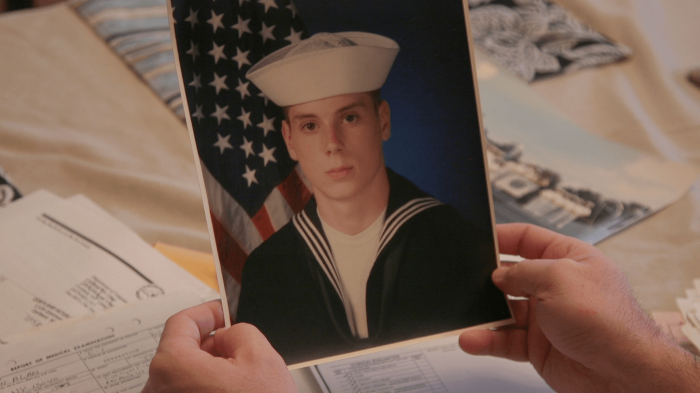While the ever-widening Marines United scandal has dominated military headlines, it does not mark the first time photos of female Marines have been shared indiscriminately and abusively among current and former colleagues.
As documented in a
2015 investigation into treatment of military sexual assault survivors by Human Rights Watch, service members have experienced this sort of harassment before. In one case detailed by the report, after informing her superiors that she had been raped, a Marine’s name and picture were posted on a Facebook webpage frequented by Marines. Soon after the photo went up, she received threatening anonymous text messages and her car tires were slashed.
When she told her command, they brushed her off until her lawyer intervened. No disciplinary action was taken against either the persons she accused of rape or those who harassed her.
This story is sadly not unique. Photos reportedly shared by the 30,000-member Marines United, seemingly taken or posted without the subject’s consent, were accompanied by personal information and derogatory comments, in some cases intimating that the women in the photo deserved to be raped.
Although the Marine Corps has condemned the group and a criminal investigation is underway, it remains to be seen whether anyone in the group of current and former Marines ultimately will be punished. If past is prologue, such punishment is not likely – at least not in any way that will make a meaningful and long-term impact.
The failure of Marine Corps leadership to punish those involved with these webpages, whose existence has long been an open secret, is just the latest example of the problem.
The 2015 Human Rights Watch report, and
a 2016 report into the long-term consequence for rape victims who were forced out of the military service, showed that most survivors of abuse report retaliation in various forms after their assault. But no one contacted in connection with the report – not the services, not the Defense Department, not any of the dozens of people interviewed – could cite an example of disciplinary action taken against a service member for mistreatment of a sexual assault survivor.
The new scandal makes clear that nothing meaningful has changed in the intervening years. In a recent Senate Armed Services Committee hearing on Marines United, Marine Corps Commandant Gen. Robert Neller admitted that he had only “a lame answer” as to why nothing has been done to address reports of online harassment of female service members dating back to 2013.
So, what should be done?
Military leaders need to step back and look at the breadth and scope of the problem. Sexual assault and harassment is a symptom of a culture in which a person who doesn’t quite conform to what it is considered the prototypical soldier/sailor/airman/Marine quickly will be singled out and treated as “other.”
There should be no more hiding behind the notion that this culture is necessary to maintain a strong fighting force or that the bad behavior is isolated to a few bad apples. Military sexual harassment and assault, and retaliation against those who report is, the product of failure at all levels to embrace the strength that comes from our differences. Until military leadership accepts that the military will be stronger if it celebrates rather than shuns those differences, change is unlikely.
The military also needs to adopt a measured and purposeful strategy for progressively changing the culture and eliminating sexual assault and harassment. This will not happen overnight: To achieve meaningful and lasting reform, the military should set realistic goals and hold itself accountable for reaching those goals.
Instead of making vague promises to eliminate sexual assault, military leaders should set specific targets for reducing assault and harassment over a five-year period. The aim should be to use the progress to meet the ultimate goal of eradicating sexual assault and harassment in the military.
Congress should also continue to push the military to improve its systems and processes for protecting service members who experience sexual assault and retaliation, and providing meaningful access to redress for those who were wrongfully treated after reporting such crimes.
The Human Rights Watch reports recommended revising the
Military Whistleblower Protection Act to afford service members the same level of protection as civilians against retaliation, prohibiting criminal charges or disciplinary action against survivors for minor collateral misconduct, and establishing systems to ensure that people who commit or tolerate acts of retaliation be held to account. Congress should adopt these measures without delay to ensure that those who are brave enough to report their assaults are not victimized again.
Finally, the military should send a clear and unequivocal message to all service members that sexual assault, and retaliation against victims in any form, will not be tolerated. The first step would be holding the individuals responsible for Marines United accountable and kicking them out of the service.
Moreover, if progress is to be made, commanders must also be held accountable for the actions of their subordinates. Section 531 of
this year’s defense authorization act includes a provision that makes commanders responsible for failing to respond when notified of acts of retaliation or harassment – there should be no tolerance for this sort of behavior at any level.
It’s time we made sure that it stops being too late for victims and keep faith with service members who have suffered unnecessarily on our watch.










